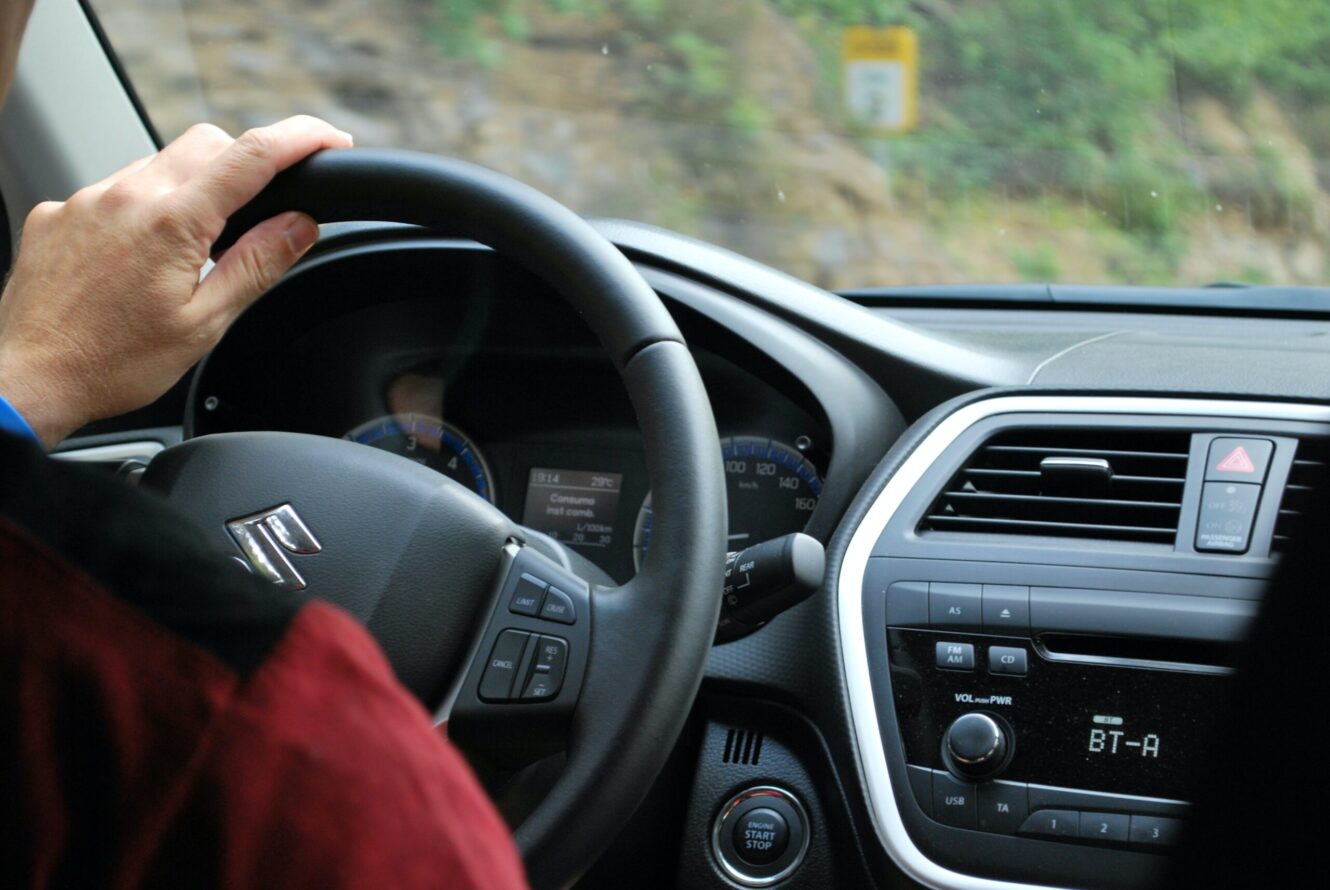If someone sues you for more than your insurance covers in Florida, you are personally responsible for the amount exceeding your policy limits. The plaintiff can pursue your personal assets, including bank accounts, property, or wages, to satisfy the remaining judgment amount after insurance pays its share. Your insurance company will still pay the amount of the liability limit towards the judgment, but you will be responsible for the remainder.
Asset protection can set up legal shields to keep your property safe if you get sued after a car accident. It often involves using trusts, LLCs, or other protections under Florida law to make it harder for someone to take your money and property.
What to Do if Someone Sues You for a Car Accident
To protect your assets after a car accident, you should (1) assess whether the damages are within the policy limits, (2) determine which assets are vulnerable to collection, (3) implement a plan to protect those assets, and (4) submit a financial affidavit that demonstrates the difficulty of collection on a money judgment.
The most important thing to do if you’ve been sued for a car accident is review your personal assets and take proactive steps to protect them. Florida offers strong homestead protection and exemptions for certain assets like retirement accounts. If your assets are held in revocable trusts, they are not shielded from judgments. You may need to restructure ownership—such as transferring non-exempt assets into properly structured LLCs or considering an irrevocable trust for future asset protection.
Even after a lawsuit is filed, you can still often take steps to protect your assets from an eventual judgment.

Can You Lose Your House Due to a Car Accident?
In Florida, you cannot lose your primary home because of a car accident, even if you’re at fault. Florida’s homestead law protects your primary residence from most creditor claims, including those resulting from a car accident lawsuit. As long as the property is your permanent residence and falls within size limits—half an acre in a city or up to 160 acres in an unincorporated area—its full value is shielded.
However, not every property qualifies. Rental properties, vacation homes, and investment real estate are not protected by the homestead exemption.
There may be other exemptions that protect your home, including tenants by entireties protection.
We help clients throughout Florida.
Our attorneys give customized advice about specific steps to protect your assets from creditors. Our consultations are offered remotely by phone or Zoom.

Does Insurance Protect You from Car Accident Liability?
Car insurance, specifically liability coverage, protects you financially if you’re legally responsible for a car accident. It pays for the other party’s medical bills, vehicle repairs, and other damages—up to your policy limits. But it does not cover your own injuries or damage to your vehicle. That requires collision or comprehensive coverage.
How Insurance Can Protect Your Personal Assets
Adequate liability coverage, especially with an umbrella policy, is one of the best ways to protect your assets. Most car accident claims settle within policy limits because the injured party’s attorney wants a quick payout without going to court. A settlement paid by insurance includes a full release of the driver and car owner, which means you won’t face personal liability once the insurance pays.
What Happens If Insurance Isn’t Enough?
Lawsuits become more likely when a driver has only minimum coverage or appears to have significant unprotected assets. If your insurance doesn’t offer enough coverage, the injured person may try to get more by suing you personally. In those cases, having an asset protection plan—such as a protected homestead, retirement accounts, or LLCs—can discourage litigation and improve your chances of settling within the insurance limits.
If You Are Being Sued for a Car Accident, What Can They Take?
If you are being sued for a car accident in Florida, the person suing you (called a judgment creditor) can try to take certain types of property to satisfy a money judgment. This includes non-exempt bank accounts, up to 25% of your net wages, investment properties or land that’s not your primary home, equity in vehicles, and any other non-exempt personal belongings. Florida law, however, offers many exemptions that can protect some or all of your property from being taken.
What Can a Judgment Creditor Do?
After getting a judgment, a creditor can use legal tools to investigate your financial situation. This includes reviewing your bank records, tax returns, and income statements. They can also take your deposition under oath to ask about your finances. Hiding assets usually doesn’t work and can make things worse. Florida law gives creditors broad authority to discover and collect assets, so it’s important to focus on legal protection strategies instead of secrecy.
Bank Account and Wage Garnishment
The most common collection tools in Florida are garnishments. A judgment creditor can get a court order to freeze your bank accounts and take funds from them. Once your bank receives a garnishment writ, they are required to freeze any account that has your name on it. The bank then reports how the account is titled and how much money is in it. You can try to unfreeze the account by proving that the money is exempt from collection under Florida law—like if the money came from Social Security or other protected sources.
A creditor can also garnish your wages. Your employer may be ordered to take up to 25% of your paycheck (after taxes and deductions) and send it to the creditor. This type of wage garnishment continues until the debt is paid or your job ends.
Legal Defenses to Collection
Florida law offers several defenses to protect your money. If you qualify as head of household, also known as head of family, your wages are usually exempt from garnishment. If you deposit those exempt wages into a bank account, they stay protected for up to six months.
Some bank accounts are also protected if they are jointly owned with a spouse and set up properly as tenants by the entireties. In addition, accounts that hold Social Security, disability, or annuity payments are generally protected from garnishment. There are also technical defenses available if the creditor didn’t follow proper procedures during garnishment.
Should You Fill Out the Financial Affidavit After a Car Accident?
In most cases, yes—filling out a financial affidavit after a car accident is a good idea. Most car accident claims settle without going to trial, and providing financial information can help push the case toward a resolution. The affidavit shows the other side that you’re not an easy target for collection beyond your insurance coverage. But if you have significant unprotected assets and the claim is large, you may want to wait before turning it in.
Why Is the Financial Affidavit Requested?
Soon after an accident, the insurance company may ask the defendant to complete a financial affidavit. This document lists your assets and gives the plaintiff and the insurer a clearer picture of whether it’s worth going after you personally. If you appear “collection-proof,” meaning you don’t have much that can legally be taken, the plaintiff is more likely to settle within your insurance limits. That protects you from being sued for the excess amount.
Are You Required to Fill It Out?
Florida law does not require you to complete a financial affidavit. It’s voluntary. But sometimes it’s in your best interest. If you can show that you don’t have significant non-exempt assets, the other side may lose interest in pursuing you for more than your policy covers. This can help avoid a lawsuit or push the insurer to settle the case quickly.
Review Your Asset Protection First
Before submitting anything, it’s important to evaluate your asset protection. The affidavit is signed under oath, so everything you list must be accurate. If you have assets that aren’t protected, it may be wise to make legal changes first. For example, you may be able to retitle bank accounts or restructure ownership of certain property to increase protection.
The best approach is to review your financial exposure and fix any vulnerabilities before turning in the affidavit. Once your assets are protected, the affidavit can be a powerful tool to avoid personal liability and help reach a faster settlement.
Being Sued for a Car Accident When You Have No Assets
Lawsuits are expensive and time-consuming. Most car accident plaintiffs and their lawyers prefer a quick and easy insurance settlement, no matter how small, rather than filing a lengthy, expensive, and risky lawsuit against someone who does not have any assets.
The same applies to people who do have some or even a substantial amount of assets but who are able to protect those assets from creditors.
FAQs about Car Accident Liability
These are our answers to some of the most common questions we receive about car accident liability in Florida.
What assets can they take if you are being sued for a car accident in Florida?
In Florida, if you are sued for a car accident and lose the case, the plaintiff may be able to seize non-exempt assets to satisfy the judgment, such as cash, stocks, and non-homestead real estate. Personal property up to a certain value and wages for head of family are protected under Florida’s exemption laws. Assets like your primary residence (under the homestead exemption), retirement accounts, and certain personal property are also protected from creditors.
How much can someone sue for a car accident?
Some states limit the amount you can sue for for a car accident. Florida does not. There are no caps on economic or non-economic damages in Florida.
The amount must be documented and supported by evidence of damages. Car accident damages include medical bills, pain and suffering, loss of future earnings, and ongoing damage for loss of functioning.
It does not matter if the injured person has medical insurance. Medical bills (which can be very high) are included in the amount of damages. Effective asset protection may be able to protect your assets from a claimant.
Can someone sue you personally after a car accident?
In Florida, a person injured in a car accident is entitled to sue the at-fault driver and the owner of the at-fault driver’s vehicle. The car owner’s liability for an accident caused by a permissive user is capped at $100,000 per person/$300,000 per incident if the owner is sufficiently insured, and $600,000 if the user is uninsured, pursuant to Florida Statute�?324.021. While most car accident cases will settle within the policy limits, cases that do not settle can result in a lawsuit.
Can someone sue you after your insurance pays or settles?
In most cases, a person cannot sue you after your insurance pays the plaintiff. If the at-fault driver’s insurance company settles with the injured person, the settlement documents will include a release of all claims. A release means that the injured person cannot afterward sue the at-fault driver or the vehicle owner.
For how long can someone sue you after a car accident?
The statute of limitations for a car accident lawsuit in Florida is two years. An injured person has two years after a car accident to sue the at-fault driver or the owner of the at-fault driver’s vehicle. The two-year timeline stems from Section 95.11 of Florida law.
What happens if you lose a car accident lawsuit?
If you lose a car accident lawsuit in Florida, the injured person becomes a judgment creditor. They can use various judgment collection tools to collect on their judgment.
However, proper asset protection planning could make it difficult for the judgment creditor to collect on their judgment. Florida residents have some of the strongest asset protection tools available in the country.
Do you have to provide a financial affidavit after a car accident?
Florida law does not require you to submit a financial affidavit after a car accident.
Can you still protect your assets after a car accident?
Yes, you can still protect your assets even after a car accident. Many asset protection strategies work both before and after a lawsuit is filed.
How do car accident lawsuits work in Florida?
Florida car accident lawsuits require proving the other driver’s negligence caused the accident. The lawsuit must be filed within a specific time frame. Car accident lawsuits seek compensation for damages and injuries under Florida’s no-fault insurance system. vehicle owner afterward.
Sign up for the latest information.
Get regular updates from our blog, where we discuss asset protection techniques and answer common questions.


